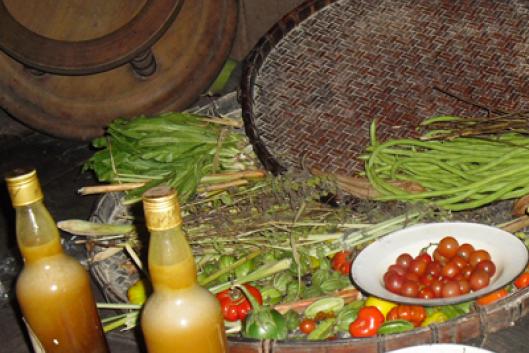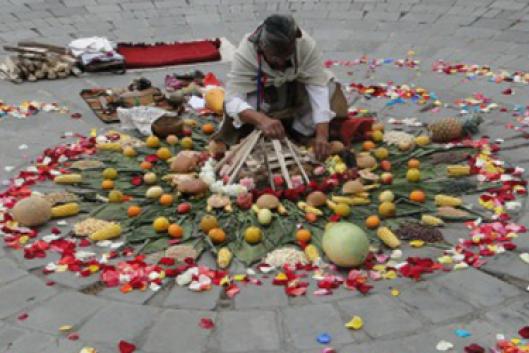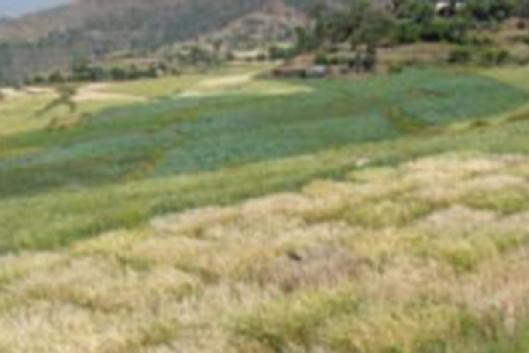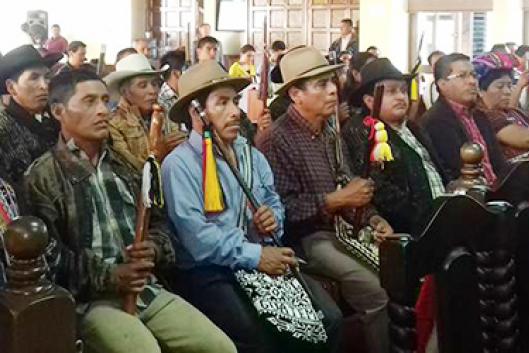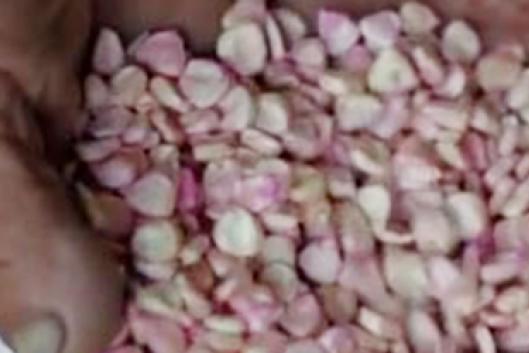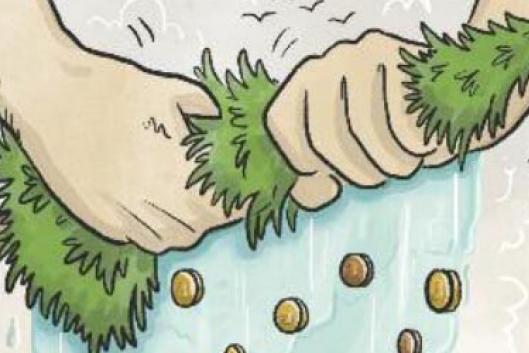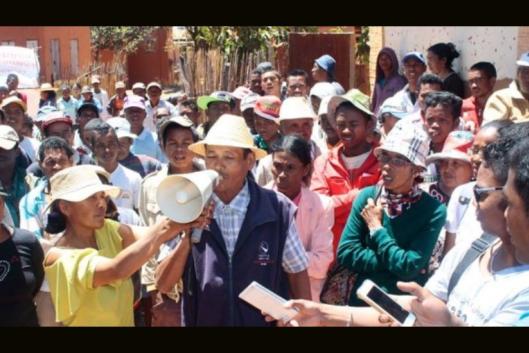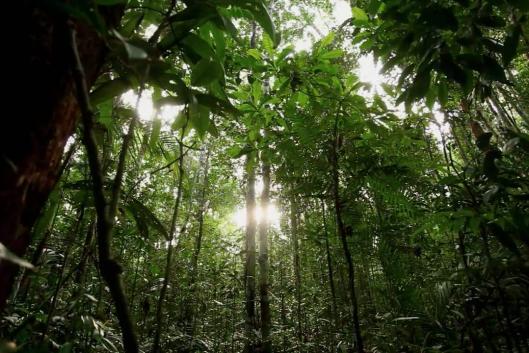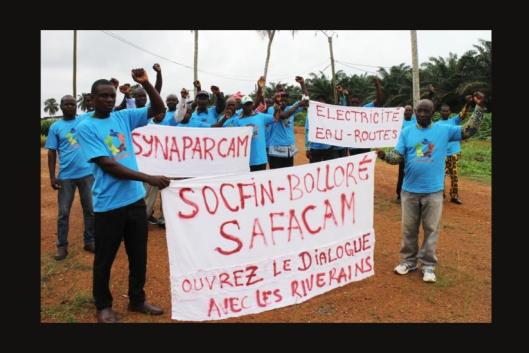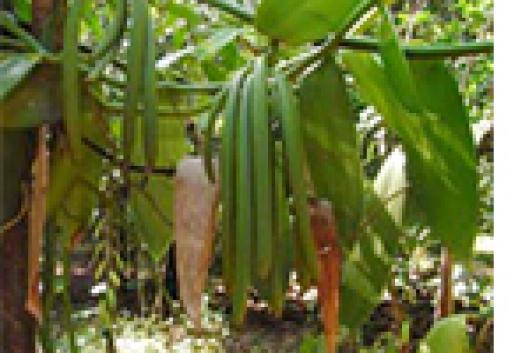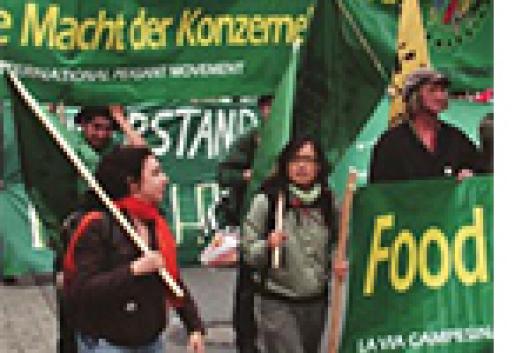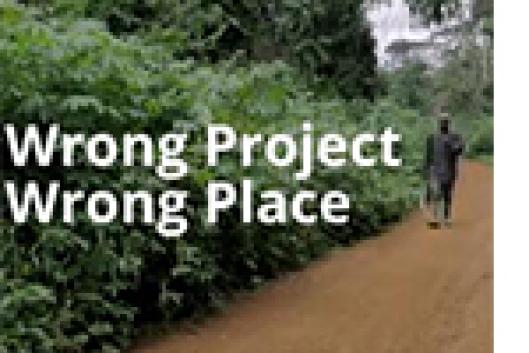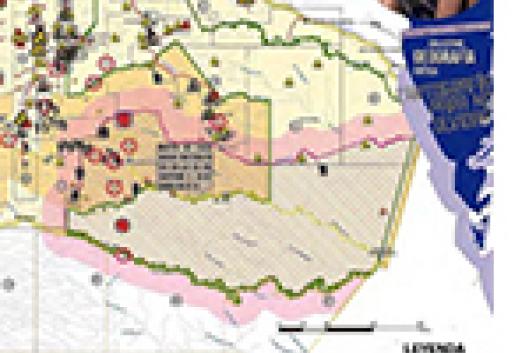Compared with the struggle to stop the destruction of forests, the resistance of forest-dependent communities against governments facilitating corporate control over their traditional knowledge and use of seeds, plants and animals on which they depend and build their local food, health, economic, religious and spiritual systems is less visible – but no less important. This bulletin focuses on that struggle where the stakes are equally high, over who controls traditional and intellectual knowledge linked to seeds, plants and animals. We could also call it the struggle to defend a collective way of living that secures the well-being and survival of communities, or just the battle to defend life.
Bulletin Issue 227 – November/December 2016
How the CBD's interpretation of "biodiversity" has become a threat to the livelihood of communities
WRM Bulletin
227
November/December 2016
OUR VIEWPOINT
HOW THE CBD'S INTERPRETATION OF "BIODIVERSITY" HAS BECOME A THREAT TO THE LIVELIHOOD OF COMMUNITIES
-
8 December 2016At a meeting in a wixárika community in Jalisco, México, with organizations and villagers from other areas, the language we used to communicate was Spanish. We discussed threats to territories, corn, transgenics, agrochemicals, “biopiracy” and the patenting of plants and indigenous knowledge. Most participants were wixáritari (called huicholes in Spanish). During the meeting, they talked amongst themselves in their language. They say words like “transgenics” and “biopiracy” in Spanish.
-
8 December 2016Interview with Blanca Chancoso, Kichwa member of the Otavalo peoples and vicepresident of ECUARUNARI – the Kichwa Confederation of Ecuador.
-
8 December 2016Skilful selection and nurturing of the seeds best suited to a particular location are at the heart of peasant farming and agroforestry systems. The resulting agrobiodiversity of hundreds of thousands of crop varieties and animal races found in peasants' fields around the globe provides the corner stone of the world’s food system. Peasant farmers and the local varieties that they developed are still feeding the majority of us. By contrast, industrial agriculture dominated by a small number of transnational corporations has drastically reduced the agrobiodiversity of crop varieties grown.
-
8 December 2016Guatemala is located in the heart of Mesoamerica. Its enormous cultural diversity is a historical legacy of the Mayan culture, in which indigenous communities have developed systems of organizational thought and self-government—always tied to knowledge based on their worldview, spirituality and the continuous maintaining and renewing of their relationship with Mother Earth.
-
-
8 December 2016The CBD is a forum where organizations and movements can bring our positions and try to get them reflected in official documents. We do not believe the world will be changed at COP meetings (gatherings of CBD member governments), other CBD meetings, or any other United Nations Convention. It is a working space complementary to the daily work of resistance, mobilization, and transformation that we are doing at the grassroots level, together with local communities and Indigenous Peoples.
PEOPLES IN ACTION
-
8 December 2016Indigenous peoples, scientists, lawyers and environmental experts met October 12-18 to discuss impacts of and strategies to halt genetically engineered trees (GE trees), with a focus on the U.S. Southeast. While there are no permissions yet for commercial production of GE trees in USA, hundreds of GE tree test plots are growing throughout the region. Many of these are operated by ArborGen, a company that has been the subject of several protests due to their promotion of GE trees. http://stopgetrees.org/alert-strategy-meeting-stop-genetically-engineered-trees-taking-place-myrtle-beach/
-
RECOMMENDED
-
8 December 2016Report: From Global Enclosure to Self Enclosure: Ten Years After - A Critique of the CBD and the "Bonn Guidelines" on Access and Benefit Sharing. ETC Group, 2007. A reference document to understand the history of biopiracy and its consideration in the context of the CBD. The Guidelines were the basis for negotiation of the Nagoya Protocol. In Spanish: http://www.etcgroup.org/es/content/del-confinamiento-global-al-autoconfinamiento-una-cr%C3%ADtica-al-cbd-y-las-directrices-de-bonn
-
8 December 2016Executive Director at Focus on the Global South, Shalmali Guttal, talks about how trade and investments have converted agricultural lands and fishing grounds into special economic zones, especially in the Asian region. In the interview she describes how these conversions have affected the lives and livelihoods of communities. The interview also covers the broader issues of trade & investments' impact on medicines, intellectual property right, and corruption and public governance. http://www.abc.net.au/news/2016-11-05/cross-border-exchanges-could-build-resistance-in/7997664
-
8 December 2016Article: Industry benefits but does not pay its dues. Patents are an assault on genetic resources. By Guy Kastler, General Delegate of Réseau Semences Paysannes, France. In English: https://viacampesina.org/en/index.php/main-issues-mainmenu-27/biodiversity-and-genetic-resources-mainmenu-37/2047-industry-benefits-but-does-not-pay-its-dues-patents-are-an-assault-on-genetic-resources
-
8 December 2016The short video shows how the large-scale oil palm plantation project has negatively impacted the lives of thousands of community members, threatened biodiversity hotspots, and failed to meet development promises to local communities in the Southwest region of Cameroon. The film was released in anticipation of a crucial decision to be made by the Government of Cameroon on the renewal of a land lease for the controversial Herakles Farms (SGSOC) project. “The Wrong Project in the Wrong Place” is available here:
-
8 December 2016The Ecuadorian Amazon is experiencing many incidents of economic, political and socio-cultural conflict. These are mainly related to the opening of roads that, in turn, attract new settlements by outsiders, tourists, unauthorized flights in light aircraft, illegal logging and an increased military presence, among others. The impact of these activities affects populations throughout the Amazon basin. The document "Current Conflict: Attack of indigenous peoples in isolation by the Woarani family in the strictly protected zone [zona intangible] of the Yasuní National Park" analyzes this reality and how a spiral of violence against Amazonian indigenous peoples was generated.
